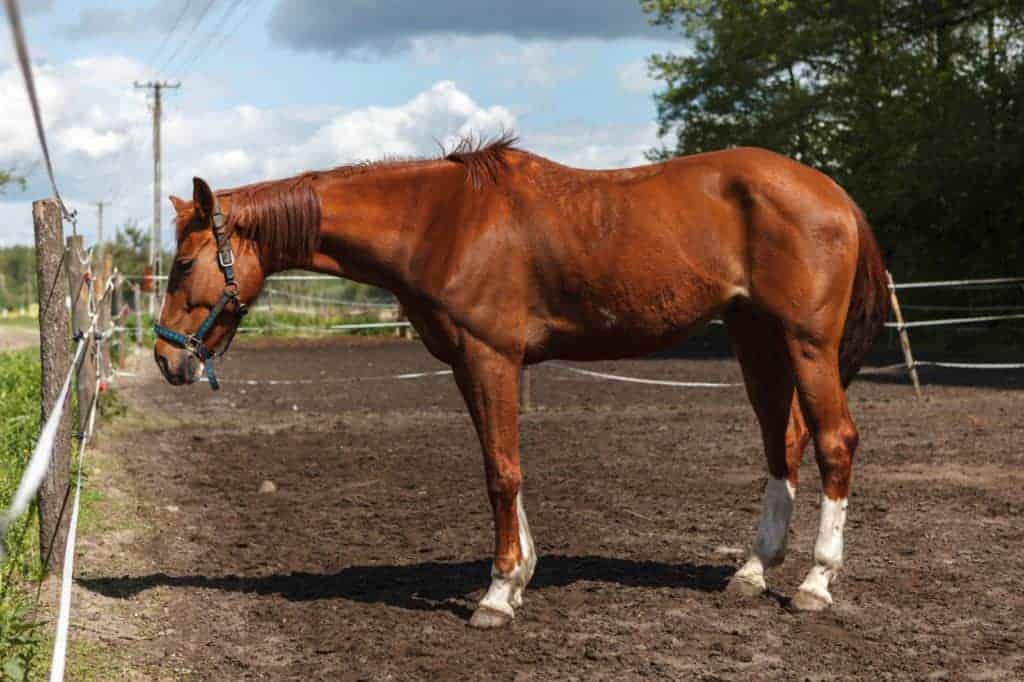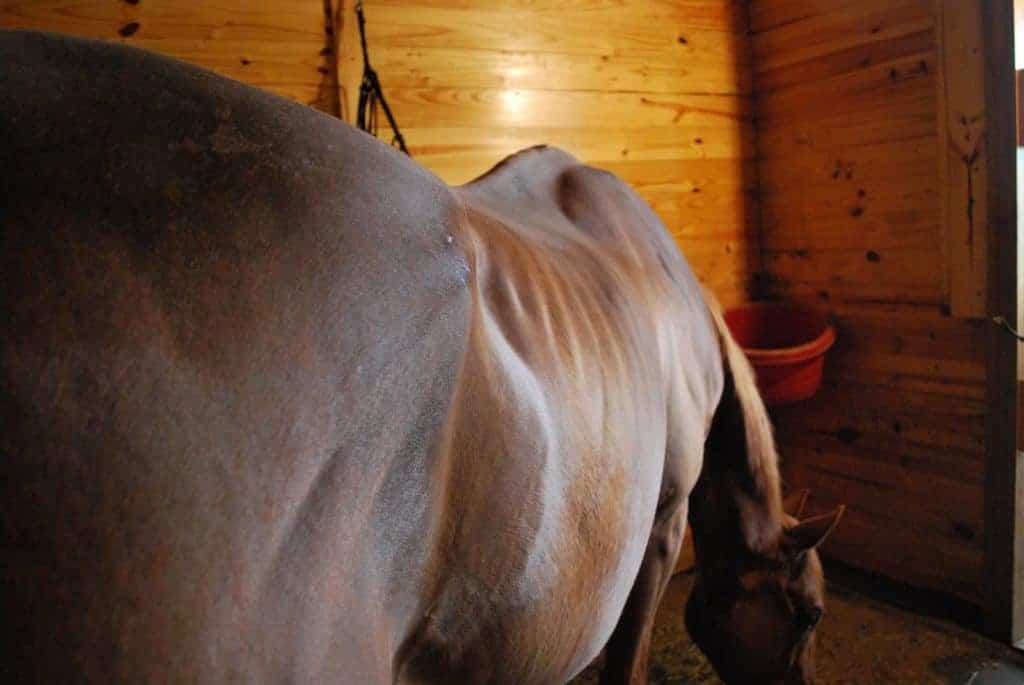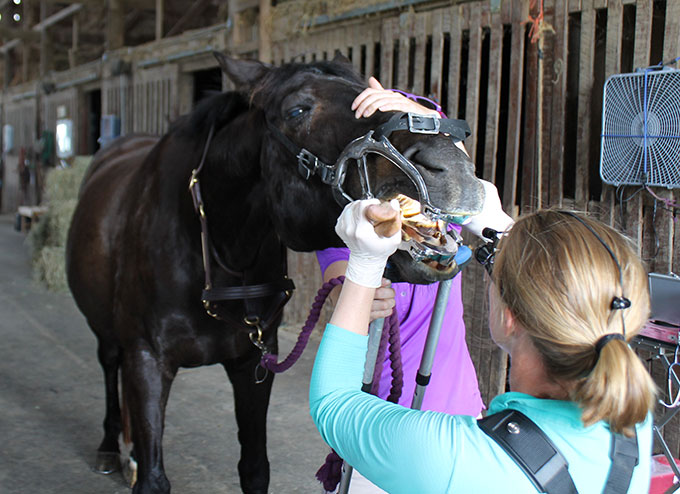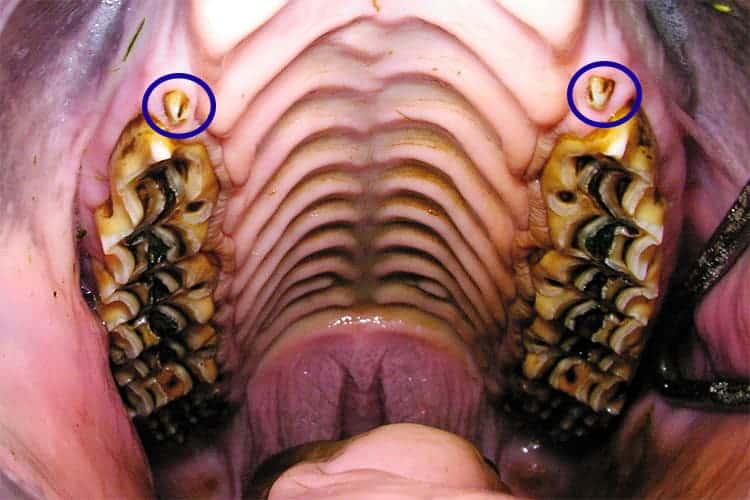
Are Apple Seeds Bad for Horses?
Apples are a token equine treat, but could they be toxic? While it’s unlikely, our nutritionist still says to use caution when feeding fruits to horses.

Apples are a token equine treat, but could they be toxic? While it’s unlikely, our nutritionist still says to use caution when feeding fruits to horses.

Belgian horses with two copies of the DDB2 genetic variant are four times more likely to develop ocular squamous cell carcinoma (SCC) than those with one or no copies, researchers found.

Chemotherapy can help horses with lymphoma achieve remission and extend their lifespans for several months or years, researchers learned.

Many factors affect your horse’s ability to mount an effective immune response, one of which is his age. Learn more about the horse’s immune system and how it functions at every stage of his life.

Dietary restriction plus a low-intensity exercise program helped improve overweight horses’ insulin sensitivities, which could help reduce their risk of developing laminitis.

When riding your horse in the woods or the wilderness, things can go wrong–and usually when least expected. Here are some possible predicaments you might face while out on the trail.

Find out which flowers, shrubs, and trees you should avoid when sprucing up your barn this spring.

Health conditions, management changes, and palate preferences can affect a horse’s appetite.

With an estimated 88% of horses over 20 years of age diagnosed with dental disease, veterinarians must be sure to maintain these patients differently than their younger counterparts.

Some products found on farms are flammable, toxic, or hazardous to human and animal health. Learn more about how to use, store, and discard them properly.

Feed your roly-poly pony the way Nature intended to prevent obesity-related diseases such as laminitis and equine metabolic syndrome.

The transition from baby to permanent teeth often goes smoothly, but issues can arise along the way.

Veterinarians have only recently described this dental disorder, which primarily affects older horses’ incisors and canines. Because EOTRH comes on slowly and insidiously, many owners and their vets don’t pick up on it until it’s in its late—and painful—stages, one equine dental specialist says.

Hair loss in horses can be a frustrating management concern simply because the reasons for its occurrence are so many and so varied. Here are some common causes.

If your senior horse has few to no teeth, he might not be chewing and digesting the nutrients he needs to maintain his health.

While these teeth usually don’t pose a health risk to the horse, they are often removed in performance horses.
Stay on top of the most recent Horse Health news with
"*" indicates required fields